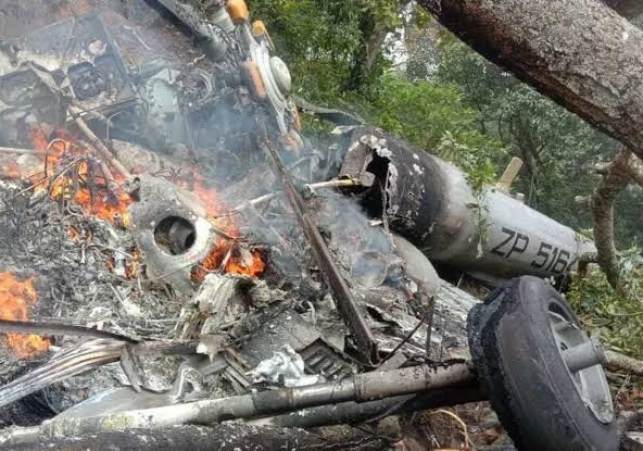

The Indian Air Force (IAF) announced on Friday that the December 8 Mi-17V5 disaster, in which India's first chief of defence staff (CDS) General Bipin Rawat was killed along with 13 others, was caused by the pilot's spatial disorientation owing to adverse weather.
The statement was made in response to preliminary findings of a tri-services investigation, “The accident was a result of (the chopper’s) entry into clouds due to unexpected change in weather conditions in the valley. This led to spatial disorientation of the pilot resulting in controlled flight into terrain (CFIT).”
According to the Hindustan Times, the crash was most likely a CFIT mishap, with gloomy weather playing a role.
CFIT is an aviation term that refers to an airworthy aircraft colliding with terrain while under full control of the flying crew. The pilot or crew is ignorant of the impending danger until it is too late in such mishaps. As previously stated, loss of situational awareness is a crucial component in CFIT incidents.
The investigation found no evidence of negligence.
According to the air force, the court of inquiry has ruled out mechanical failure, sabotage, or negligence as causes of the tragedy.
The statement says, “The inquiry team analysed the flight data recorder and cockpit voice recorder besides questioning all available witnesses to determine the most probable cause of the accident.”
The court of inquiry's proposals for preventing such accidents is currently being reviewed.
The IAF gave a detailed presentation to defence minister Rajnath Singh on the Mi-17V5 accident probe findings on January 5.
When it crashed near Coonoor, the Russian-made helicopter, which was considered exceptionally safe and trustworthy, was fully operational. The low-flying chopper collided with cloud cover seconds before exploding in a blaze, only seven minutes before its scheduled landing in Wellington.
At 11.48 a.m., the helicopter took off from Sulur air base and was due to arrive at the Wellington golf course's helipad at 12.15 p.m. The helicopter, however, lost communication with air traffic control at Sulur at 12:08 p.m., 20 minutes after it took off.
The IAF is anticipated to conduct a review of the protocols that govern flights that transport important individuals. When the Mi-17V5 crashed, Rawat was on his way to give a seminar at the Defence Services Staff College (DSSC) in Wellington.